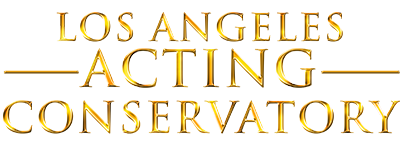Getting ready for a student visa interview can feel overwhelming, especially if it’s your first one. Whether you’re heading to Los Angeles or any other U.S. city, student visa interview preparation is key to turning your study plans into reality. From choosing the right school to completing your USA visa application, the interview is the final critical step. Preparing in advance helps you feel confident, calm, and ready to make a strong impression.
Whether you’re heading to Los Angeles for school or planning to study elsewhere in the United States, success in your visa interview can make or break your study plans. This part of the process helps the consular officer determine that you’ve applied for the right reasons and that you’re ready for the academic experience ahead. Think of this moment as a checkpoint where your documentation meets your story, and both need to align confidently.
Understanding The Student Visa Interview Process
The student visa interview is a personal meeting between you and a consular officer at a U.S. Embassy or Consulate. The U.S. consular officer conducts a student visa interview to ensure you meet eligibility requirements. The officer isn’t just looking at what’s on paper. They want to hear from you directly. They’re checking to see if you’re a real student with a real purpose for entering the country and someone who will follow the visa guidelines.
During the interview, you’ll be asked a series of questions. Some may be straightforward, like confirming your name or school. Others might dig into your financial background, your intentions, or what you plan to do after your studies. Interviews usually last only a few minutes, but they carry a lot of weight. Being clear and ready can make the process smoother for you.
Preparation plays a big part in how confident you’ll feel that day. Practicing your answers out loud, going over your documents, and understanding the kind of questions asked can all help. Plan ahead so you aren’t scrambling. Dress neatly but comfortably and make sure you know how to get to your appointment on time. The way you carry yourself, how you speak, and how organized you are will all leave an impression.
Common Student Visa Interview Questions
Most of the questions you’ll be asked fall into a few main categories. Knowing these areas in advance can help you prepare thoughtful and convincing answers. Remember, the officer isn’t trying to trick you. They just want to make sure your plans are solid and that you’ve made them with clear thinking.
Here are a few common topics you can expect to be asked about:
1. Educational Background
- What school are you planning to attend?
- Why did you choose this specific school or program?
- What’s your major or area of study?
2. Financial Situation
- Who is funding your education?
- Have you been awarded any scholarships?
- Do you have proof you can cover tuition and living expenses?
3. Plans After Graduation
- Do you plan to return to your home country?
- What are your career goals?
- How will this program help you reach them?
4. Personal Motivation
- Why do you want to study in the United States?
- How long do you plan to stay?
- Do you have family in the U.S.?
A good example is when a student applying to a performing arts school explained that they wanted to train under specific instructors who specialize in screen acting, which isn’t commonly available in their home country. Their honest, passionate answer made a strong impression and showed both intentionality and value behind their choice.
Prepare for these questions, but don’t memorize answers word-for-word. You want to sound natural. Be honest about your story and reasons for studying in the United States. Authenticity goes a long way.
Tips for Student Visa Interview Preparation
When you’re preparing for a student visa interview, how you answer questions matters just as much as what you say. You don’t need to speak perfect English or deliver rehearsed speeches. What the consular officer wants is a real conversation. Your best bet is to be yourself, just a version that’s informed and ready.
Start by practicing common questions out loud. This helps you become more comfortable finding the words when under pressure. Instead of trying to memorize every single answer, aim to remember key points about your story. Think about why you chose your school, what your career goals are, and how this experience fits into your future plans.
Here are a few pointers to keep in mind:
- Speak clearly and at a steady pace. Don’t rush your words even if you’re nervous
- Keep your answers understandable and direct. Long stories can lose the listener
- If you don’t know something or get confused, it’s okay to say you’re unsure. Just explain why
- Stick to facts. Don’t overpromise or change your story to sound impressive
- Use personal examples that reflect real purpose. Talk about what matters to you and how studying in the United States will help get you there
Let’s say you’re asked why you chose a drama school in Los Angeles. Instead of saying “because it’s famous,” mention the training style, the industry access, or the kind of acting you want to pursue and how that city supports that. When you show that your decision is intentional and well thought out, it comes across stronger than anything overly polished.
What to Bring to Your Student Visa Interview
Walking into a visa interview empty-handed is a fast way to get things delayed. Being organized shows you’re taking the appointment seriously and allows the officer to move through your information faster. Have everything neatly tucked into a folder or binder, sorted by section.
Below are the must-haves you should bring:
- Your valid passport and the visa appointment confirmation
- Form DS-160 confirmation page with barcode
- SEVIS fee payment receipt
- Your I-20 or DS-2019 form from your school
- Acceptance letter from your school
- Academic records (transcripts, diplomas, standardized test scores)
- Financial proof (bank statements, affidavit of support, sponsor information)
- Ties to your home country (documents that show your plan to return, like property deeds or job letters)
Put the most important forms up front in your folder. If they ask to see something, you should be able to slide it out without digging around for minutes. It feels more calm and professional that way. Labeling each section also saves time and prevents mix-ups. Don’t underestimate the small things. They add up.
Check the embassy or consulate website before your appointment to make sure the requirements haven’t changed. Some locations ask for passport-sized photos or originals instead of copies depending on the season or country updates. Double-check.
Staying Calm During the Interview
Even the most prepared person can get anxious when sitting in front of an unfamiliar officer waiting to hear if they can study in another country. Nerves are expected. What helps is learning how to handle them.
A good method is practicing mock interviews ahead of time. Ask someone to sit across from you and go through questions with a timer. Simulate the same short response time as the real thing. The more you practice, the less the setting will throw you off.
Here are a few tips to stay more grounded:
- Get a decent night’s sleep before the interview
- Eat something light and calming that morning
- Arrive early so you’re not panicked about missing your spot
- Breathe intentionally while waiting. They may keep you outside or in a waiting area
- Don’t overthink your last answer. Keep your focus on the current question
You don’t have to be perfect. What matters is that you show you’re genuine, informed, and willing to follow the student visa requirements. Let your real story lead and trust that you’ve done your part preparing.
Your Journey Begins Here
A student visa interview can feel like a big mountain to climb, but it’s just another step on the path to studying in the United States. The more you understand the purpose of the interview and prepare in the right ways, the more confident you’ll feel when you walk into that room. Focus on the conversations, not just answers that sound right.
Keep in mind that the consular officer isn’t there to hold you back. They’re there to make sure you’re ready. If your documents are set, your story is honest, and your reasons are clear, then you’re already in a good place.
Every part of the visa interview, from what you say to what you bring, plays a role in how smoothly things go. Be clear, stay calm, and show why studying in the United States matters to you. This is where your next chapter begins, and it’s worth stepping into with confidence.
As you prepare to make your dream of studying in the U.S. a reality, make sure your USA visa application is carefully completed. At Los Angeles Acting Conservatory, we welcome international students who are passionate about the performing arts and are ready to take the next step in their creative journey. We’re here to guide and support you every step of the way, so you can stay focused on your goals and pursue the training that inspires you most.

